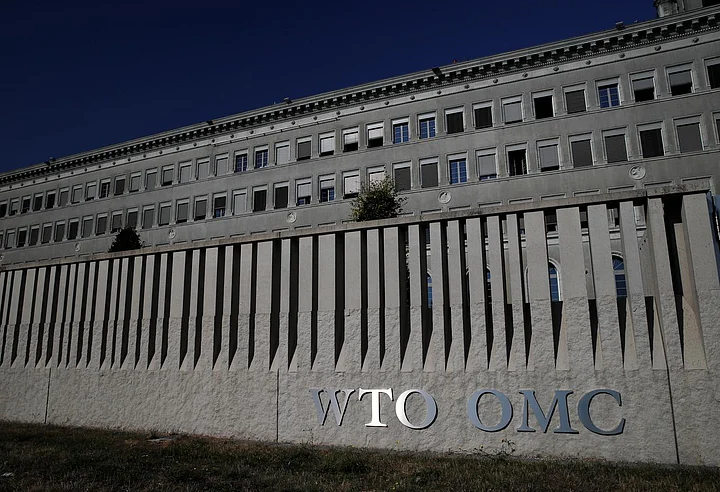The US on Thursday, 4 July, dragged India to the WTO by filing a complaint against New Delhi's move to increase customs duties on 28 American goods, alleging the decision is inconsistent with global trade norms.
According to a communication of the Geneva-based World Trade Organisation (WTO), the US said the additional duties imposed by India "appear to nullify or impair the benefits accruing to the US directly or indirectly" under the GATT 1994.
The General Agreement on Tariffs and Trade (GATT) is a WTO pact, signed by all member countries of the multi-lateral body, aims to promote trade by reducing or eliminating trade barriers like customs duties.
What Has the US Told WTO?
The US has alleged that the duties imposed by India appears to be inconsistent with two norms of GATT.
The US has stated that India does not impose these duties on like products originating in the territory of any other WTO member nation.
“India also appears to be applying rates of duty to the US imports greater than the rates of duty set out in India’s schedule of concessions,” the communication said quoting the US application.
The duties are inconsistent because "India fails to extend to products of the US an advantage, favour, privilege or immunity granted by India with respect to customs duties and charges of any kind imposed on or in connection with the importation of products originating in the territory of other members...," the US has alleged.
As part of the dispute, the US has sought consultations with India under the aegis of the WTO's dispute settlement mechanism.
“We look forward to receiving your reply to the present request and to fixing a mutually convenient date to hold consultations,” it said.
What May WTO Do Now?
As per the WTO's dispute settlement process, the request for consultations is the first step in a dispute.
Consultations give the parties an opportunity to discuss the matter and find a satisfactory solution without proceeding further with litigation.
After 60 days, if consultations fail to resolve the dispute, the complainant may request adjudication by a panel.
This case assumes significance as officials of both the countries would be meeting next week here to discuss trade related issues.
The two countries are also at loggerheads at the WTO on other issues. The US has challenged certain export promotion schemes of India, while India has challenged USA's unilateral hike on customs duties on certain steel and aluminium products.
What’s the Background?
The US has rolled back export incentives from India under its GSP programme and New Delhi has imposed higher customs duties on 28 American products, including almond, pulses, walnut, chickpeas, boric acid and binders for foundry moulds.
The other products on which duties were hiked include certain kind of nuts, iron and steel products, apples, pears, flat rolled products of stainless steel, other alloy steel, tube and pipe fittings, and screws, bolts and rivets.
The duties were hiked as retaliation to the US move to impose the highest customs duties on certain steel and aluminium goods.
India's exports to the US in 2017-18 stood at $47.9 billion, while imports were at $26.7 billion. The trade balance is in favour of India.
(Edited for clarity.)
(At The Quint, we question everything. Play an active role in shaping our journalism by becoming a member today.)
